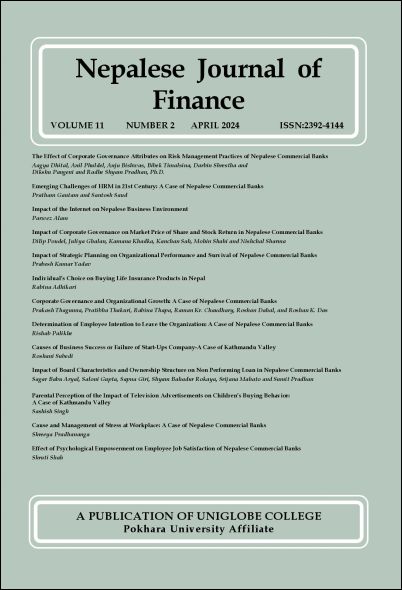Emerging Challenges of HRM in 21st Century: A Case of Nepalese Commercial Banks
DOI:
https://doi.org/10.3126/njf.v11i2.68815Keywords:
workforce environment, business ethics, work-life balance, conflict management, organizational culture, effective HRM practicesAbstract
This study examines the emerging challenges of HRM in 21st century in Nepalese commercial banks. Effective HRM practices is the dependent variable. The independent variables are workforce environment, business ethics, work-life balance, conflict management and organizational culture. The primary source of data is used to assess the opinions of respondents regarding effective HRM practices in Nepalese commercial banks. The study is based on primary data with 121 respondents. To achieve the purpose of the study, structured questionnaire is prepared. The correlation and multiple regression models are estimated to test the significance and importance of effective HRM practices in Nepalese commercial banks.
The study shows that workforce environment has a positive impact on effective HRM practices. It indicates that better workforce environment promotes effective HRM practices. Likewise, the study showed that business ethics has a positive impact on effective HRM practices. It means that good business ethics leads to the effective HRM practices. Similarly, work-life balance has a positive impact on effective HRM practices. It implies that proper work-life balance helps to promote effective HRM practices. Further, conflict management has a positive impact on effective HRM practices indicating that better conflict management process leads towards effective HRM practices. Moreover, organizational culture has a positive impact on effective HRM practices. It shows that better organizational culture leads towards the effective HRM practices in the context of Nepalese commercial banks.




